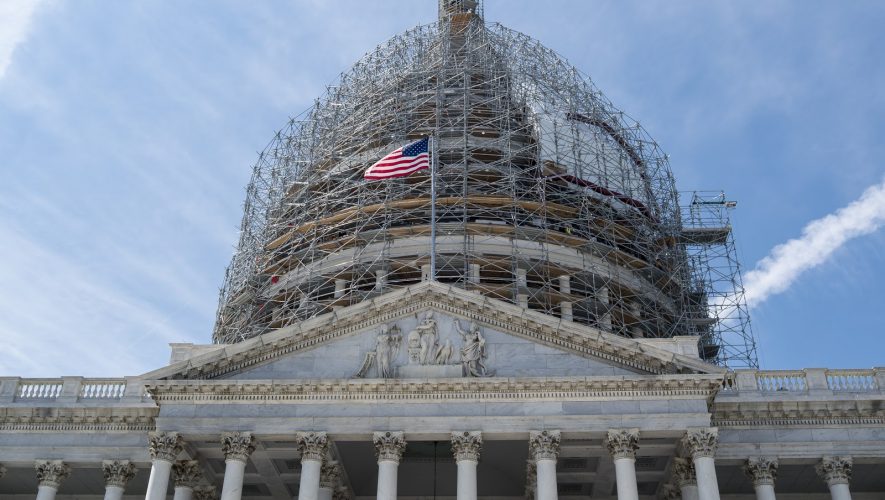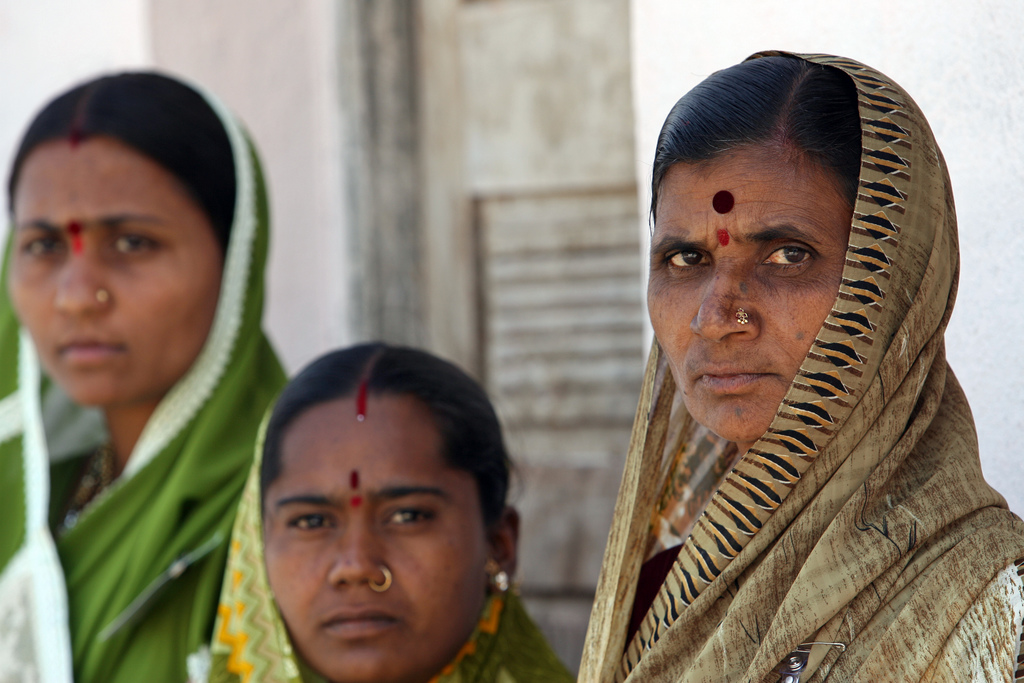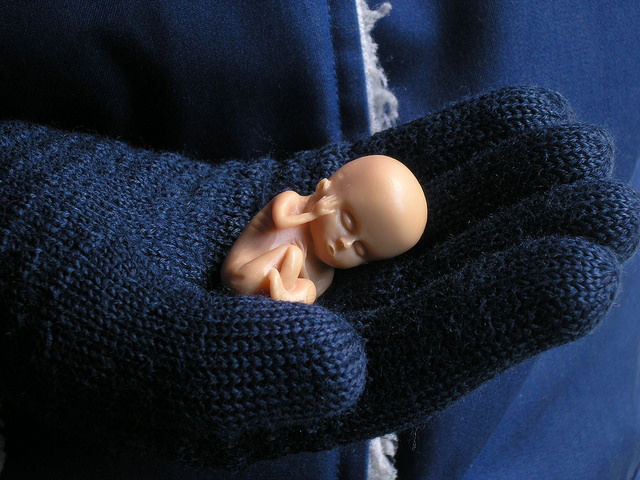Winston Churchill said, “Democracy is the worst form of Government except all those other forms that have been tried from time to time,” and here is why: democracy can lead to the tyranny of the majority.
Political scientist Richard McKelvey called this “majoritarian cycling.” Majorities exploiting and oppressing minorities can easily evolve into the rule of an exclusive group or even dictatorship of a single person. This theory was shown in the rise of the Nazi Party, which started as a small fringe group but won 18 percent of the vote in the 1930 election. After this gain in legitimacy, the Nazis quickly won larger and larger vote shares, leveraged their seats into cabinet positions and a chancellorship for Adolf Hitler, and eliminated all minority parties to seize unchecked power. The rise of the Nazi Party was caused in part by majoritarian cycling.
Some argue that representative democracy prevents this if quotas are used to boost minority power and influence. Quotas secure a specified share of seats in the legislature for representatives hailing from particular groups, such as immigrants, unemployed workers, or women.
But the representatives do not perfectly represent their constituents. Representative democracy fails to recognize that individual identity should take precedence over group identity. Individuals should be valued more than their group as a whole because diversity exists within their group. For example, not all constituents of female senators think alike and share the same qualities. Although representative democracy promotes better governing decisions and efficiency because the representatives are usually well-educated and experienced, it fails to honor the principle of true representation: everyone’s voice should be heard.
Instead of advocating for representative democracy, some writers—including William Beckford, Jeremy Bentham, and John Stuart Mill—argued that the best solution for the tyranny of the majority is direct democracy. They believed in the utilitarian principle of seeking the greatest happiness for the greatest number.
Bentham never seemed to come to terms with the tyranny of the majority problem, and Mill acknowledged this. Mill tried numerous ways to prevent the tyranny of the majority. He advocated universal suffrage and toughening the process of voting. He wanted the polling stations located far from everyone to make sure only those who truly cared, who were willing to travel far, were voting.
Mill, however, still failed to find the perfect system. He realized that as long as a majority exists, so will tyranny. In a utilitarian direct democracy, representation is perfectly fulfilled, but the quality of governing decisions decreases, and the voting system does not favor the minority because the majority will always exist.
The utilitarians failed largely because democratic voting doesn’t calculate a voter’s level of interest in a candidate or outcome. Without a way to calculate such interests, direct democracy can be dangerous. Majoritarian cycling will exist, as will the tyranny of the majority, which the ancient Greeks realized was just the tyranny of the poor over the rich. Therefore, there must be a change in American democracy.
Quadratic voting allows people to express the degree of their preference. Steven Lally and E. Glen Weyl, inventors of quadratic voting, explained that it allows voters to trade for as many votes as they want using “voice credits.” Each person receives the same amount of voice credits regularly from the government. For each race or referendum, one voice credit translates to one vote, four voice credits are two votes, and a hundred voice credits are ten votes. During an election or referendum, one can spend their voice credits on votes or save them for other elections or referendums. There are no limits to how many voice credits one person can save, and credits cannot be transferred from person to person. If one chooses to spend their voice credits, they can vote for or against an outcome.
Lalley and Weyl designed the system to allow voters to express their priorities. How many voice credits they sacrifice for an outcome indicates how strongly they feel about it. Because the votes and the voice credits have a quadratic relationship, monopolies of votes cannot exist—no matter how many voice credits one voter has, they cannot control the outcome. Voters would carefully select the outcomes they care most about, a feature standard voting lacks.
Eric Posner and Weyl gave a fictional example in their book Radical Markets. Kentaro’s father was killed by a bear when Kentaro was a child. Heartbroken, Kentaro promised that one day he would decrease the bear population to protect his community. He campaigned for gun rights to hunt the bears and saved his voice credits for forty years to vote during a national gun rights referendum. His campaign gathered all the people that faced the dangers of bears every day and would sacrifice everything to decrease the population of bears in their towns. Although his community is the minority, it has a strong interest in change.
The results were shocking. Even though 75 percent of citizens opposed gun rights, the initiative won with 60 percent of the vote. With quadratic voting, an outcome is decided not by the majority, but by the price voters are willing to pay, creating a market-like voting system. This system not only gives the minority chances to affect society but also gives those who are desperate for an outcome a larger say. Individuals who are willing to sacrifice more for an outcome deserve the outcome more than those who are less invested.
Some may say that plurality voting—voting for one of multiple candidates—solves the tyranny of the majority, since more options mean a more divided majority. Plurality voting alone, however, does not consider everyone’s vote as much as quadratic voting does. For example, if A won with 40 percent of the vote, and if the other 60 percent of voters did not approve of A, this outcome would not be representative.
Another problem with plurality voting is the existence of fringes or third parties. If most people are left-wing, but there are two left-wing candidates—one from a major party, from a fringe party—then the right-wing party could win if the fringe candidate divides the left-wing voters. Majority voting solves this, but tends to result in voters voting for the most ideologically compatible of the viable candidates, even if they do not fully approve of the candidate. This is the case for most presidential elections around the world, and stems from political scientist Maurice Duverger’s finding that voters do not vote for their ideal candidate, but the candidate that has a greater chance of winning.
Quadratic voting easily solves this problem because voters do not have to fear wasting their vote. They can cast more than one vote or vote against a candidate or outcome. Posner and Weyl argued that voters will be more inclined to vote against a candidate they despise than for a candidate they’re only somewhat aligned with. Therefore, under quadratic voting, only the most approved candidates will survive.
According to the Pew Research Center, “Republicans and Democrats are now further apart ideologically than at any point in more than two decades . . . the median (middle) Republican is now more conservative than 97 percent of Democrats, and the median Democrat is more liberal than 95 percent of Republicans.” Pew’s observations may indicate a worsening political divide.
Based on human history, divisions can cause not only alienation between different political ideology groups but also, if extreme enough, revolutions and civil wars. Quadratic voting can solve this problem by preventing politicians from solely focusing on voters who share their political ideology. Instead, they are incentivized to engage with all voters, thereby minimizing the number of votes cast against them. Under quadratic voting, each additional voice credit buys less voting power on an issue, making extreme views more expensive to express and compromise more likely. Individuals, therefore, are more willing to spend their voice credits on current, immediate issues instead of radical, unrealistic ones.
The claim that quadratic voting prevents political division is also supported by an experiment. When participants took a survey based on their degree of support on political value questions, participants using quadratic voting seemed more likely to agree on voting outcomes than those using standard voting. The experiment’s result can be explained by participants wisely using and allocating their credits on issues that they think are the most important and ignoring less-important ones.
For example, if A has liberal views, using standard voting, A will most likely cast their votes disagreeing on most conservative values and agreeing on most liberal values. Using quadratic voting, however, A will save their votes for issues they prioritize most. Maybe they will cast most of their votes on agreeing on one liberal value, and just a few votes opposing some conservative values. Quadratic voting, therefore, decreases political disagreements on less-important issues and increases compromise on important ones.
The nature of utilitarian democracy allows the majority to rule over the minority and creates a division that is hard to repair. Democracy should be uprooted into a just system—a direct democracy that represents all who are affected and strengthens the voice of those who value an outcome more. Such a democracy is the only way to give minorities a proper say, maintain quality of governing in a direct democracy, and fix the division crisis. Quadratic voting excellently embodies this system.



